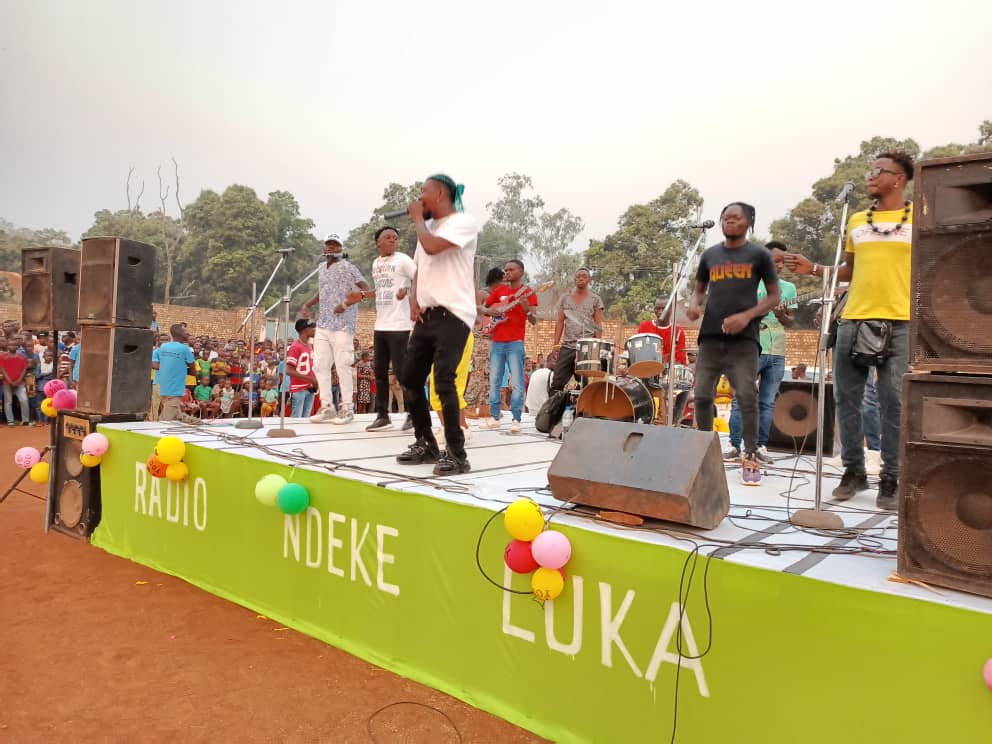Radio Ndeke Luka, our project in the Central African Republic, organised relocated radio programm in the city of Bambari at the beginning of February, as well as a series of reports on the Ouaka prefecture, of which it is the capital. These initiatives, which are supported by the European Union, aim to accompany the peace process in CAR and raise awareness of hate speech and false information.
Radio Ndeke Luka closer to its audience. Our radio station in the Central African Republic organised a programme on 4 February in the municipal stadium of Bambari, in the Ouaka region. The programme was largely devoted to raising awareness on disinformation, strengthening dialogue and social cohesion. The radio teams hosted the event on the microphone, alongside specialists and local artists who came to provide the atmosphere.
Before the programme, a team of journalists had handed out their microphones to the population of the town to gather their opinions on certain subjects and thus prepare passages of the programme. Interviews with politicians were also produced. The whole process is part of Radio Ndeke Luka’s efforts to fight misinformation, notably through its “#StopAtènè” campaign, which means “Stop the rumours” in Sango.
Radio Ndeke Luka’s flagship programme, the Sunday political debate called ‘Patara’, also invested in this operation, by moving to the capital of Ouaka. It brings together local authorities and a member of parliament from the region for a discussion on the living conditions of the population.
Living conditions and daily difficulties were also the main focus of another radio team that went to the town of Alindao, capital of the Basse-Kotto prefecture, to report on the situation. During its stay in the field, the team produced a series of reports that were broadcast on the radio station. The subjects covered included the difficulties of access to education for many children, the humanitarian needs of internally displaced persons and the galloping inflation that is hitting the region’s populations hard.

